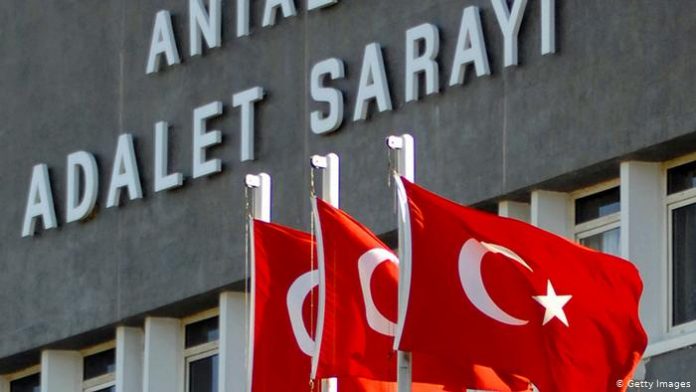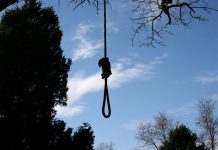By Dr Shahid Qureshi: –
The recent Pakistani Supreme Court judgment in favor of Justice Feaz Easa by brother judges ignoring the commonsense rule of ‘beyond reasonable doubt’ has saddened the legal community worldwide as well as Pakistani nation. The judge and his Spanish wife failed to provide the evidence of his sources of income used in the purchasing of three properties in London. They transferred the funds to UK for the education of their children but later purchased properties as reported in their own documents. It is called misleading and misrepresentation in British law?
Justice Eassa and some of his fellow judges are too quick to criticize Armed Forces of Pakistan and agencies ranked among top 10 best in the world. However, it is a moment of shame for justice Faez Eassa and his fellow judges that Pakistani Judiciary ranked a 120th place out of 128 countries and jurisdictions worldwide according to Washington based, The World Justice Project (WJP) 2020, annual report published on 11 March 2020. The Judges and their families are above and beyond the laws of Pakistan now.

Turkey
However, in Turkey on 21 January 2021, Turkish authorities have issued arrest warrants for 44 judges and prosecutors suspected of links to the group Ankara blames for a 2016 coup attempt, corruption and cheating in examination papers.
Earlier over 100 members of Turkey’s Constitutional Court, including prosecutors and other judiciary members were arrested on Wednesday, Turkish national broadcaster NTV reported. Two Constitutional Court judges, Alparslan Altan and Erdal Tercan are among them. The same day, the Turkish Defense Ministry also suspended at least 262 military judges and prosecutors.
Kuwait
In Kuwait few days ago, Eight Kuwaiti judges arrested reported Gulf News on 30 April 2021, “A total of eight Kuwaiti judges, three lawyers and six administrators in the Kuwait Appellate courts have been referred by the Public Prosecution to the Criminal Court. The convicts have been arrested after eight months of extensive investigation on suspicions of bribery, forgery and money laundering, Al Jarida reported.”
The Anadolu news agency, citing a statement from the Ankara Chief Prosecutor’s Office, reported that most of the suspects were believed to have risen to their judicial positions after benefiting from a leak of professional exam questions in 2011. Most were later dismissed from their jobs, the private Demiroren news agency said.
Over 100 members of Turkey’s Constitutional Court, including prosecutors and other judiciary members were arrested on Wednesday, Turkish national broadcaster NTV reported. Two Constitutional Court judges, Alparslan Altan and Erdal Tercan are among them.
The same day, the Turkish Defense Ministry also suspended at least 262 military judges and prosecutors.

Tens of thousands of public employees, including members of the judiciary, police and military, were fired in the wake of the failed putsch. Critics say the government has used the attempt to target a wide range of opponents.
Ankara accuses U.S.-based former Muslim cleric Fethullah Gulen of leading the organization behind the attempted coup, which led to more than 250 deaths and saw rogue military elements fire on civilians and bomb the Turkish parliament.
His movement is also said to have previously infiltrated its supporters within state agencies in a bid to seize control. Gulen has denied the allegations.
In 2016 after the July 15 failed coup attempt media reported:
“Hundreds of Turkish judges and prosecutors have been suspended by the Turkish Defense Ministry, with at least two Constitutional Court judges having been arrested amid widening purges that follow a coup attempt last week.
Over 100 members of Turkey’s Constitutional Court, including prosecutors and other judiciary members were arrested on Wednesday, Turkish national broadcaster NTV reported. Two Constitutional Court judges, Alparslan Altan and Erdal Tercan are among them.
The same day, the Turkish Defense Ministry also suspended at least 262 military judges and prosecutors.
The judiciary officials were investigated as part of the ongoing probe into the attempted military coup, Turkish media reported. The ministry did not specify how many prosecutors had been suspended but said an investigation into all military judges in the country had been launched.
So far, some 60,000 people suspected of backing the July 15 coup attempt have been detained, dismissed or are being investigated, according to Reuters estimates. The wide-scale purge of state institutions has affected judiciary officials, civil servants, law enforcement and education workers.
A further 6,500 education ministry staff were suspended on Wednesday, while 626 educational institutions have been shut, Reuters reported citing a Turkish official.
On Tuesday, the Education Ministry suspended 15,200 personnel and removed the licenses of 21,000 teachers working in private institutions around the country. All of these education workers will be banned from teaching in the future, Turkey’s Hurriyet Daily said.
The suspected pro-coup activists are said to be alleged supporters of a US-based self-exiled Muslim preacher Fethullah Gulen. The government has blamed the cleric, who is Erdogan’s ally-turned-foe, of running a campaign that led to an attempt to forcefully seize power in the country. On the other side, concerns have been expressed the failed coup might have only played into the hands of the Turkish government in its fight with opponents.
“Erdogan is using the coup as an excuse to stage a real coup,” professor at Zaytouneh University, Ibrahim Alloush told RT, adding that “most” of the people who were sacked from their jobs or who were arrested “had nothing to do with that coup.”
“Basically, what’s going on [in Turkey] is Erdogan trying to impose a thinly veiled theocracy, which is a true platform of Erdogan’s AKP party. These people are an offshoot of the Muslim Brotherhood and their platform is to recreate not only a religious state, but reincarnation of the Ottoman empire,” Alloush said.
Meanwhile, President Recep Tayyip Erdogan has chaired a meeting with top military officials and security ministers at his presidential palace in the capital of Ankara, where he returned late Tuesday, for the first time after the attempted coup, AFP reported. Speaking earlier to his supporters in Istanbul, Erdogan has promised to announce “an important decision” following his meeting with the national security council.
Finally, Pakistan and its judiciary need serious thinking as both can not progress in the current shape and form.
(Dr Shahid Qureshi is senior analyst with BBC and chief editor of The London Post. He writes on security, terrorism and foreign policy. He also appears as analyst on Al-Jazeera, Press TV, MBC, Kazak TV (Kazakhstan), LBC Radio London. He was also international Presidential election observer for Kazakhstan, 2019, 2016 and 2015, Azerbaijan 2020, 2018 and Pakistan 2002. He has written a famous book “War on Terror and Siege of Pakistan” published in 2009. He did his MA from Government College Lahore. He wrote his MA thesis on ‘Political Thought of Imam Khomeini’ and visited Tehran University. He is PhD in ‘Political Psychology’ also studied Law at a British University. He also speaks at Cambridge University and visiting professor in Hebe University in China.)
Views expressed are not of The London Post






